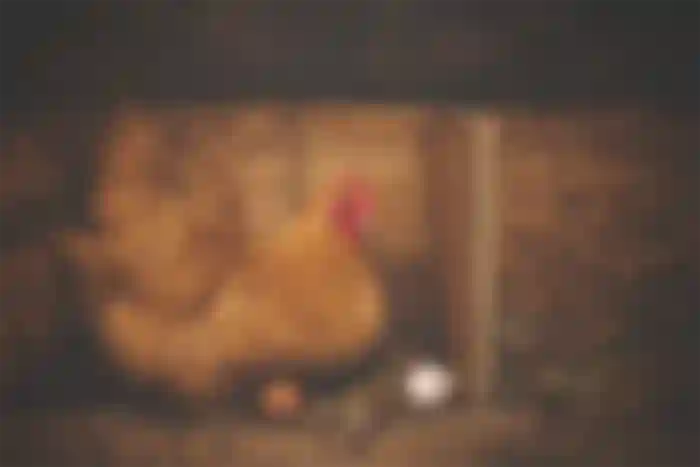This post is an entry into @JonicaBradleyJonicaBradley prompt word "Success."
The word success simply put is the accomplishment of an objective earlier set. The direct opposite is a failure. Failure to me is when the individual stops trying because the parameters available to him or her are pointing to inability to continue. What you about to read is my journey through a very tough time that shaped my life to what it is presently.
I hold this story dear to my heart, and I am in no way ashamed of it. It is my life, my journey, failures and successes.


In the 1980s when I was still of primary school age, my dad and mum usually take my siblings and me to his large expanse of the farm. Though he was a chef with the state government, farming was his first love.
On Saturdays, the whole family spends nearly the whole day on the farm. Those were quite memorable moments we all shared. They still appear in mind like it was yesterday. Early in the morning, we will set out with mum behind preparing food for us.
Ours was a practice of mixed cropping. You need to learn the rudiments else you'd get it all wrong. Before the planting season comes, we have to clear off all the weeds that have grown in the land. In some parts of the farmlands where heavy logs have grown, we fell them, used some as firewoods and the branches to make barricades against rodents, grass cutters, porcupines, and other animals that could feed on the crops before maturity. Those days when farm technology is very expensive for a consistent farmer, we use the tabloid from cassette to go round the barricade, and anytime the breeze blows, it makes a scary noise that helps to ward off such pests like birds, rodents, and the likes.
Planting Season
In our country, there are usually two seasons. The rainy and dry seasons. The rainy season is characterized by a heavy amount of rainfall. During the period, crop farming cultivates their farmlands which are preceded by land preparation that is usually undertaken immediately after the first rainfall of the year, mostly in March or early April.
My father preferred to use heaps of ridges to plant crops. On our farm, there is a section for yams (yellow yam, water yam, and the normal white yam). In the other parts of the farm is where the mixed cropping takes place.
We have to plant maize first. And within a week or two at most, the maize is seen sprouting or germinating. The maize is to be planted by the side of the heap of ridges. Then, the melon seeds are planted after the germination, the cassava is added.
Melon is a dicotyledon. They have two seed leaves and are very helpful in controlling weeds. Apart from the economic benefits of planting melon, it reduces the stress of having to weed the farm before harvesting the maize. The joy in derived seeing the maize or melon I had planted germinating seem like I'd won a Grammy back in the days.
The best part of all this historic adventure is when the maize nears harvesting, then the cassette tabloid might have been covered with weeds and birds, weaver birds would infest our farm to eat corn seeds. Since the demand for weaver birds is high, I set a local trap to catch and sell some. My piggy bank in those days was usually filled to the brim with naira notes (naira is the local Nigerian currency).
Corn traders would come from far and near to buy maize on our farm. The harvesting season is so much fun. Not all the maize comes out time, what we do is to leave the ones that have stunted growth while harvesting the mature ones.
Cassava spends not less than eight months to a year before they get mature. Some species stay fourteen months before you can get a good harvest.
The most amazing aspect of the whole process is the harvesting of melons. Now that maize has been sold off, the remaining standing maize will be left to dry up in the cobs. They are usually kept at home to make pap or corn meals that we can eat with stew. The melon pods will be gathered first then sliced into two equals. After which we cover the sliced pods with either large leaves of plantain trees or palm trees. This is to avoid birds or rabbits consuming the whole seeds. The sliced pods will be left to decay before the sieving and watching will take place. The final part is to sun-dry it before using it to prepare your meals.
Farming is fun. I couldn't remember buying some of the things we ate at home. We had all on the farm except for fish. We had a large number of locally bred cocks and hens. I envy those days again. Those were the good old day.
My only fear on the farm was snakes. I hate the sight of snakes.
The last time I went to the farm, that's been over fifteen years now, I saw a big black cobra, them I told my parent it was the last time I was going to be on the farm and it was.
Today, I have a farm of mine only for plantain. The initiative came during the lockdown in March 2020, when covid-19 locked up the earth. I didn't want to be idle, so I planted a lot of plantain sucker.
That's has been my amazing ride through the world of farming. It's a profession you won't regret if you ventured.
Farming is hard work. To succeed in it, there is need to learn a lot. Learning could be in the rain, sun and whatnot.
Today, even though I have a secular job, farming had been my first love.


That was great to read about your farming journey. I also love backyard gardening when I was young and even after my college. I planted different kinds of vegetables and even cassava and other legumes and root crops. In the present, I can't plant in the garden area anymore as there are lot of trees have grown already but sometimes, I do plant instead in a pot or in vacant small area. Thanks for inspiring us to plant again.